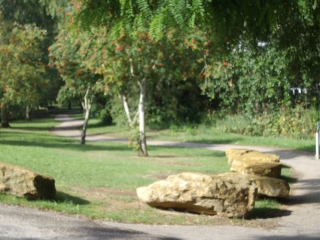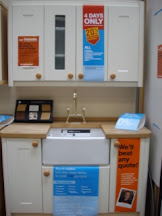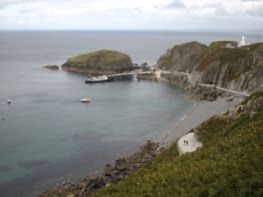If this blog seems to be getting more and more like an episode of ‘Grand Designs’ then I make no apologies for this as it is merely reflecting, as ever, occurrences in the daily lives of Kate and myself. Since we began this ‘house renovation’ phase of our retirement, each day we are driving ourselves to carry out at least one job which moves the project on.
So whereas in January this year we were taking pictures of stunning scenery in the foothills of the Maritime Alps in Italy, and by June it was the dazzling beauty of Holy Island in the Clyde, in September of the same year we treat you to a collage of some very private parts of our house – joists and roof beams. In fact there is a good reason for taking such strange pictures. They are to avoid the need for a visit from a structural engineer (and his £50 charge) who will pronounce on the merits of removing a ground floor supporting wall which currently divides the living and kitchen rooms and tell our builders what size supporting beam to put in. The picture may also give the impression of the way we are tearing apart the environment we are living in.
Take the smallest room in the house, for example, where once a toilet stood proudly beneath the window. Neither pedestal nor cistern operated properly so during our remove-anything-we-don’t-like phase a large hammer and a crowbar took care of the whole assembly in short measure. The remains now reside in our back garden awaiting some sort of transport to the local tip (there are some things that are just beyond the capacity of a folding bicycle). So having destroyed, we can move on to the construction phase and in no time at all I find myself tiling again. The experience gained in France last winter, when we tiled the vast floor area of the salle de séjour, cuisine, WC and couloir in Guy and Noëlle’s Lyon house is coming in useful here although sadly I am having to manage without Noëlle’s fine French cooking and Guy’s extensive wine cellar. But I’m coping.
Despite all the destruction, we are gradually making the house habitable, this being mostly down to Kate who goes around cleaning up the mess I keep making. She also single-handedly took on the task of covering up the existing colour scheme used in one bedroom, the stuff of nightmares. No less than three coats of paint were applied before it disappeared from sight. As a result of all our hard work we feel fairly confident as we welcome our first guests, Kate’s brother Peter and his wife Liz, that we can offer them a limited degree of comfort and cleanliness. (Please note, by the way, that we have a second and fully functioning toilet.) They may not read this until after their visit so I can reveal here that they will sleep on the £2.50 shed-bed (see last entry) and will eat at the recently delivered charity shop dining table.






















